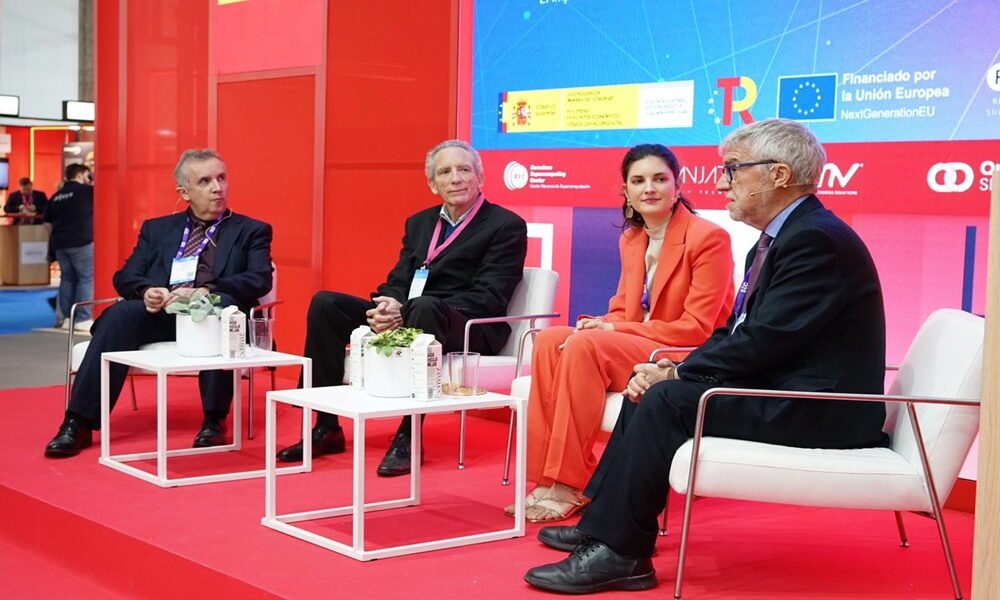
under the Mobile World Congress (MWC) of Barcelona 2023, the first quantum computer in Spain, and in turn from southern Europe, which will allow the research community to develop artificial intelligence applications. Its launch is expected to take place throughout this year.
The driver of all this has been the Quantum Spain projectwhich is supported by the Ministry of Economic Affairs and Digital Transformation through the Secretary of State for Digitization and Artificial Intelligence (SEDIA). It is financed by European funds from the Recovery Plan and will be carried out by the Spanish companies that are part of the Temporary Union of Companies (UTE).
This efficient quantum computer will be installed in the Barcelona Supercomputing Center – National Supercomputing Center (BSC – CNS) and will be integrated into the supercomputer MareNostrum 5, which is presented as the most powerful in the country and one of the most advanced in Europe and the world and which we will see operating from next July. In this way, the new quantum computer will improve the capabilities of MareNostrum 5 and will contribute to creating a efficient quantum ecosystem. The new quantum computer will have hardware that will be perfected until it reaches 30 qubits in 2025.
However, this new infrastructure will only be available to companies, public bodies and the research community, not to all users. The initiative is framed within the National Artificial Intelligence Strategy of the agenda Digital Spain 2026which has 25 centers spread over 14 autonomous communities and integrated into the Spanish Supercomputing Network (RES)which in turn coordinates the BSC-CNS.
Its main actors
In the UTE we find the startup Qilimanjaro Quantum Tech and the Spanish technology company GMV. Qilimanjaro is a Spanish startup and one of the five in the world capable of having the potential to influence the quantum computing industry. It sets itself the goal of developing the next generation of quantum computers with access to the cloud, effectively addressing complex problems in sectors such as logistics, finance and energy.
The new quantum computer will be a guarantor for the Spanish quantum sector, since it will allow the calculation capacities of the Spanish Supercomputing Network to be extended to the new paradigm of quantum computationgenerating a hybrid effect between supercomputing and quantum.
GMV is also integrated into the project. This technological group, of private capital and an important international presence, has a staff of 3,000 professionals distributed in up to 12 countries. GMV will be in charge of the conventional systems infrastructure and to contribute the necessary networks so that the quantum computer could operate without problem. The company, as assured by its director of the international area of Secure e-Solutions, Jose Maria Legidoleads the Misiones Grandes Empresas CUCO project of the CDTI.
The preferential role of Spain
It was presented as one of the six European countries selected by the European Union supercomputing consortium to host the first EuroHPC quantum computerswhich will mean a investment of 12.5 million euros for the country, which will be 50% co-financed between the EU and the Government of Spain.
In this sense, Carmen Artigas, Secretary of State for Digitization and Artificial Intelligence (SEDIA), has assured that this project represents a very important step to make Spain attractive for talent, investment and technological and industrial development. The country may begin to have a public space with an emerging technologyaligning itself with similar proposals at a European and world level.
Thus, the government plans to invest up to 200 million euros in emerging companies committed to national quantum development. It will also allocate 40 million additional euros intended for training seven million euros to the acquisition of quantum simulators developed by HP and five million euros more to programs that facilitate the access of companies to the sector.
Since October 2021, the date on which the Council of Ministers approved the start-up of the Quantum Spain project (with a financial support of 22 million euros), Spain has hoped to become a reference in quantum supercomputing. And that’s how he worked to build a 20 qubit quantum computer hosted at the BSC.
By the end of 2022, the Galician Supercomputing Center (CESGA) announced that before the end of the year it would have a quantum computer made by Fujitsu and what will it cost €14 million.



